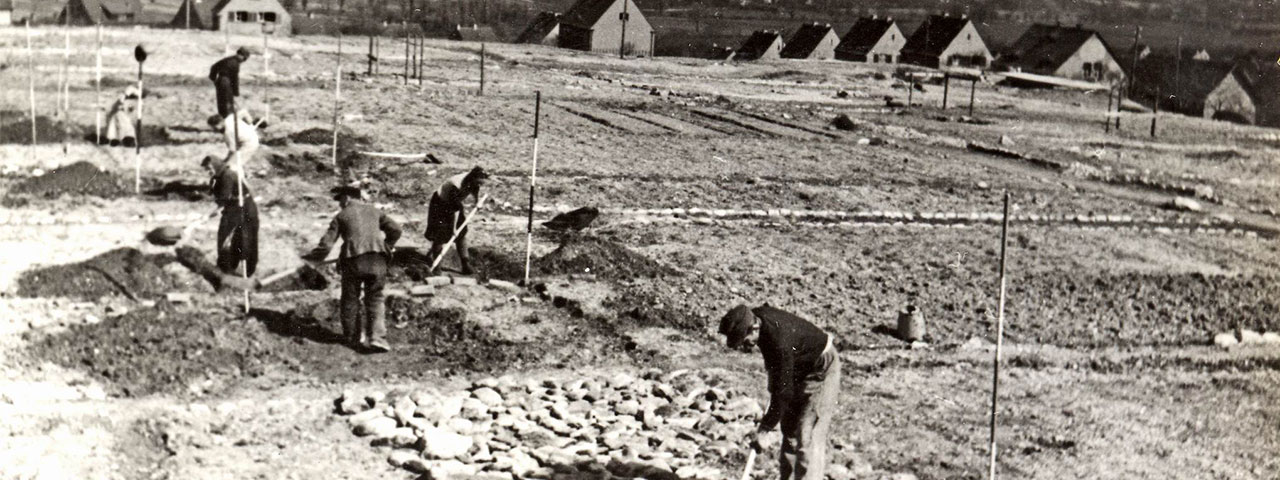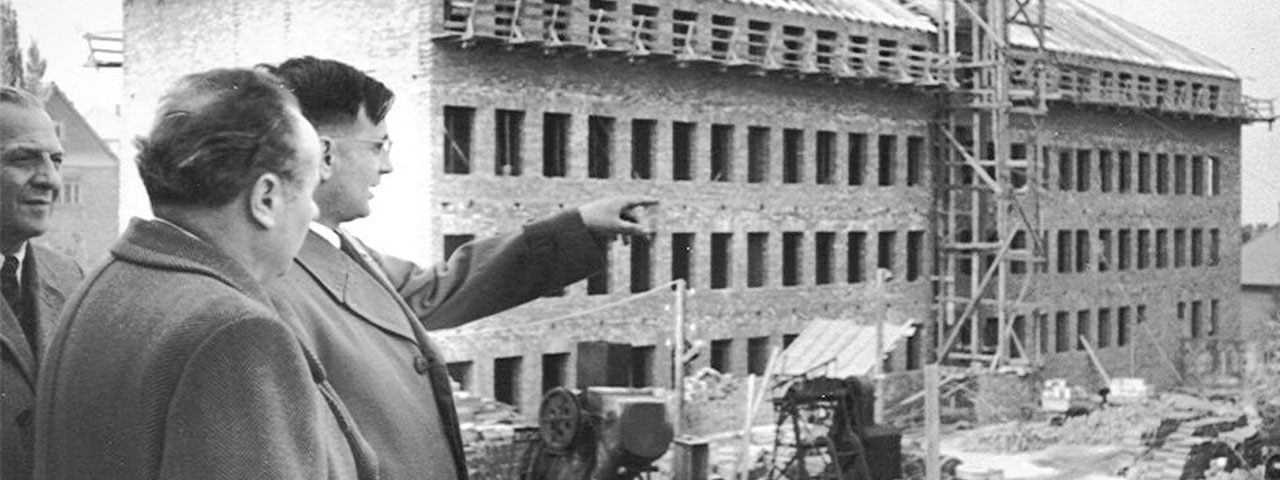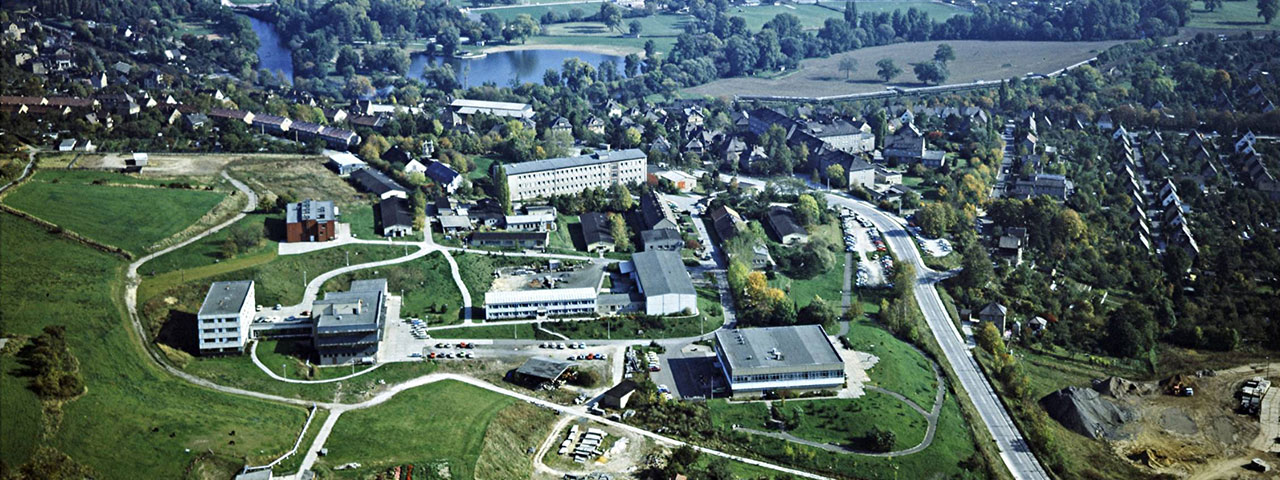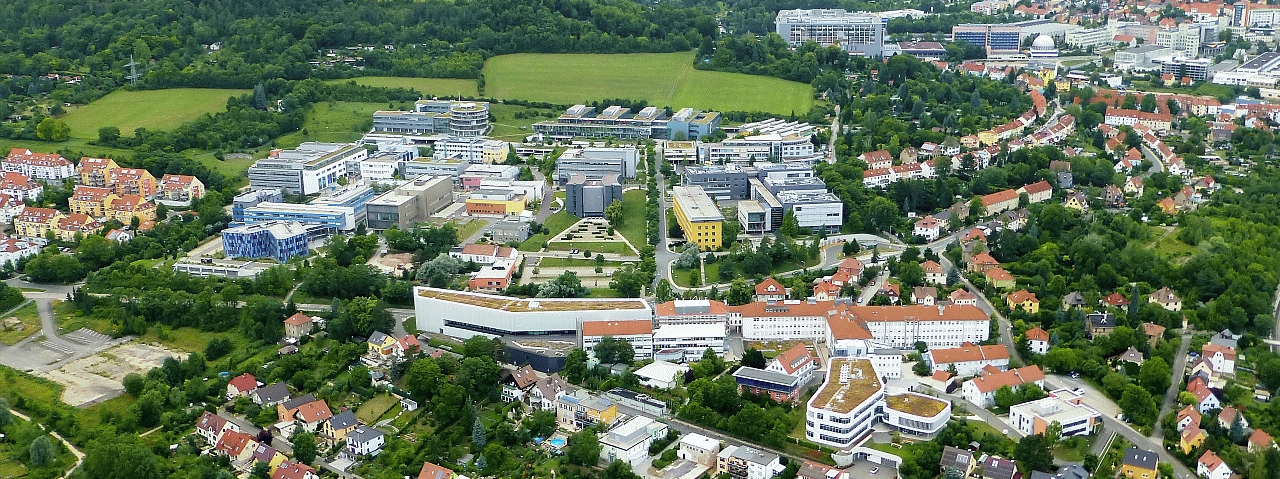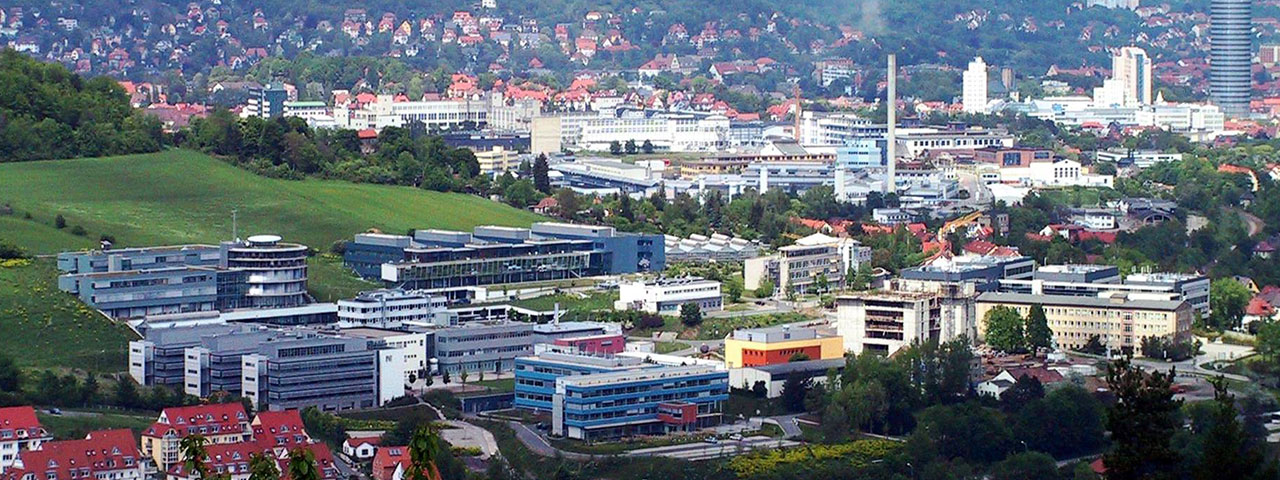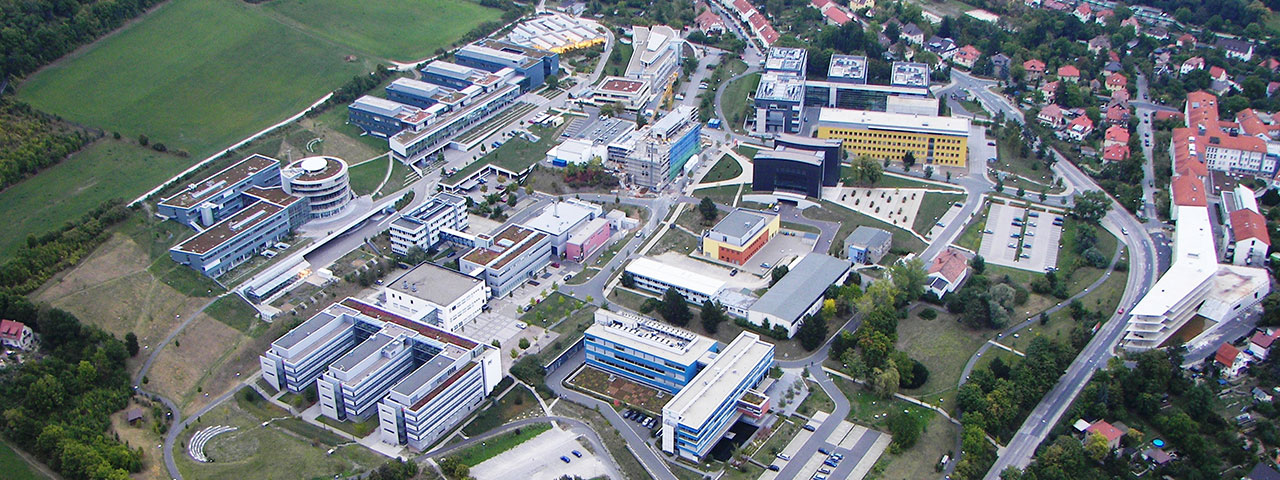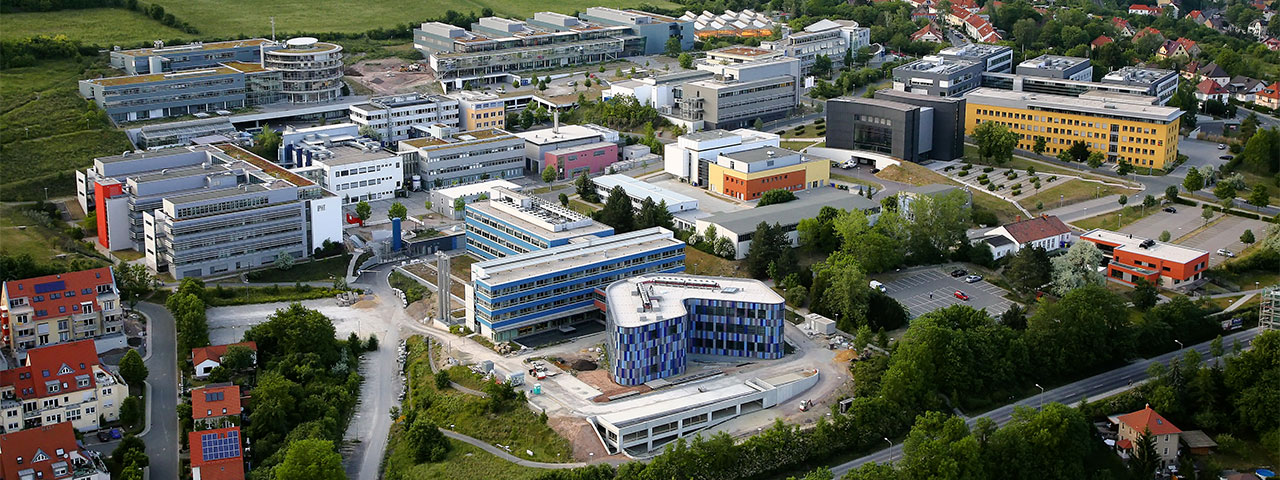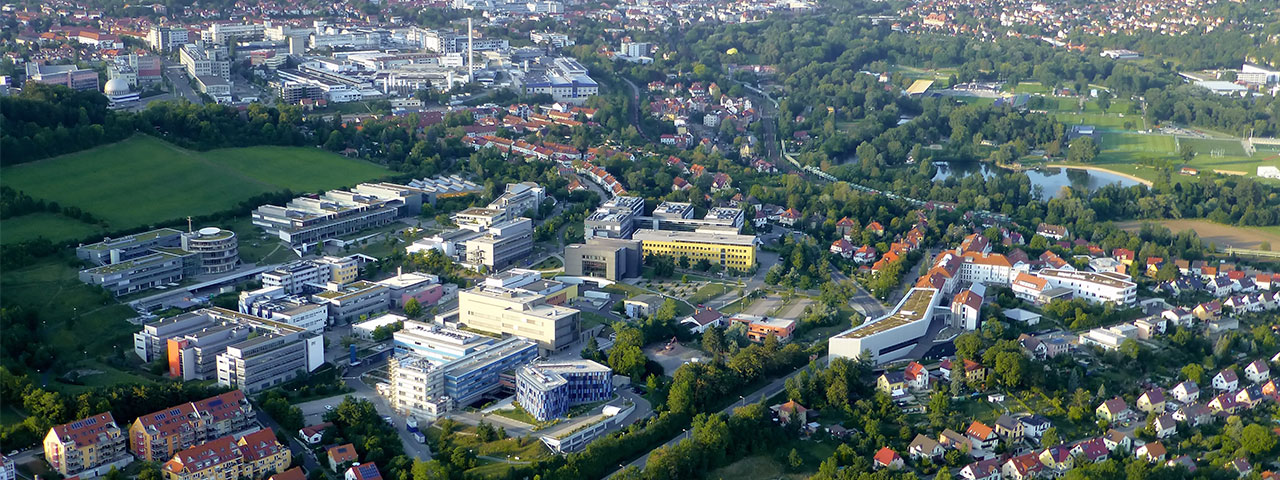Beutenberg Campus
Beutenberg Campus is a science and research site of national significance and with an excellent international reputation, situated in the south of Jena.
The physician Hans Knöll founded the first biomedical research institute at Beutenberg in 1950. From 1970, it was run as the central institute of the Academy of Sciences of the GDR (ZIMET). From 1982 institutes focussing on physics were also set up on the site.
Following German reunification in 1990, a multidisciplinary science and research centre was created in response to a recommendation by the German Council of Science and the Humanities. The centre’s activities combine basic and applied research, inspired by the motto ‘Life Science meets Physics’.
The original central institute was restructured after 1990 and operated from 1992 as the Hans Knöll Institute (HKI) and the Institute for Molecular Biotechnology (IMB, since 2005 the Fritz Lipmann Institute (FLI)). Both institutes were incorporated into the Leibniz Association and now work on natural products research and infection biology, as well as age research.
At the same time, the Physical-Technical Institute became the Institute for Physical High Technology in 1992 and today it is the Institute of Photonic Technology (IPHT), which moved its headquarters from the town centre to Beutenberg Campus in 2000. The Fraunhofer Institute for Applied Optics and Precision Engineering, founded in 1992, also moved into a new building at Beutenberg in 2002. Friedrich Schiller University, Jena, is also represented with the Institute for Applied Physics, whose priority research area is ‘optical research’. The physics-related institutes are mainly concerned with the development and application of modern optical technologies.
In 1996/97 the Max Planck Society decided to set up two additional institutes at the Beutenberg Campus site. At the Max Planck Institute for Chemical Ecology, researchers study the interactions between plants and insects, while the Max Planck Institute for Biogeochemistry tackles aspects of climate research. The institutes moved into their newly-built facilities in 2002/2003.
The research landscape is further enriched by other institutes belonging to Friedrich Schiller University and University Clinic Jena – the Centre for Molecular Biomedicine and, since 2008, the Center for Innovation Competence SEPTOMICS (due to move into its new building at Beutenberg in 2012), as well as the Section of Experimental Virology (Institute of Medical Microbiology).
Thuringia’s first start-up centre, the Technology and Innovation Park Jena, opened as early as 1991 and in 2000 the BioInstrumentation Centre began operations as a start-up centre for new companies focussing on biotechnology.
The only independent company on Beutenberg Campus is WackerBiotech GmbH (formerly ProThera GmbH), a spin-off from the Hans Knöll Institute.
The central building, constructed by the Ernst Abbe Foundation, was officially opened in 2006. It contains a canteen, a lecture theatre and a library.
Finally, 2011 saw the opening of the children’s nursery, ‘Kita Beutenberg’ (Beutenberg Kindergarten) on the campus. The kindergarten is run by Studentenwerk Thüringen, the regional students’ union.
Since 1990 the number of people employed at Beutenberg has grown from around 1100 to some 3000 (Dec. 2017). They work at nine research institutes, two start-up centres and one biotechnology firm. In 2011 the State of Thuringia set aside land south of Winzerlaer Straße for the future development of Beutenberg Campus.
Beutenberg-Campus Jena e.V.
In 1998 the scientific institutes on campus organised themselves into the non-profit-making registered association, ‘Beutenberg Campus Jena e.V.’, which represents the institutes’ interests. Among other things, the association organises training courses and public talks such as the ‘Noble Gespräche’ series of lectures by Nobel laureates.


